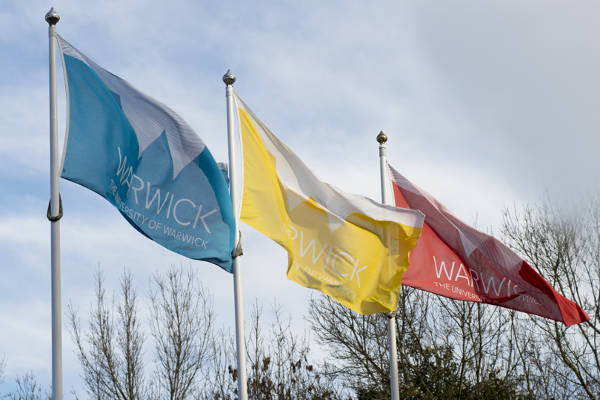News
New company, CryoLogyx, is spun out from the Department
A new biotechnology company, CryoLogyx, has been spun-out from the department, supported from a grant from InnovateUK. Cryologyx will be led by Dr Tom Congdon (A UoW UG and PG alumus) and will exploit technology developed by the GibsonGroup. Cryologyx will use innovative macromolecular (polymeric) cryoprotectants to protect biological samples, including cells used in therapy, diagnostics and drug discovery.
Read the news story here and more details will be released soon.
Prof. Matthew Gibson awarded 2021 McBain Medal from the RSC and SOCI
Professor Matthew Gibson has been awarded the 2021 McBain medal from the Society for Chemical Industry and Royal Society of Chemistry. This award is to "honour an early career researcher or technologist who has made a meritorious contribution to colloid and interface science." There were will be a special symposia late in 2021 where Matt will receive the medal and give a lecture.
The department of Chemistry is appointing funded and self-funded PhD and MSc students
The department of Chemistry expects to appoint around 60 funded and self-funded PhD and MSc students in the 2021/2022 academic year
GibsonGroup's Glycosylated nanoparticles for selective galectin targeting is ‘HOT’ article in Chemical Science
Glycans (aka sugars, carbohydrates) direct many recognition and signalling processes in biology. Multivalency (presentation of lots of copies) is crucial to overcome glycans intrinsic low affinity, hence materials (polymers, particles, surfaces) which display them are appealing probes of function, or as new diagnostics (e.g. see our work on COVID diagnostics). However, most studies use simple monosaccharides, which may not have selectivity or are only tested against plant proteins. In this work, we collaborated with teams from Bristol, York and Southampton - our collaborators developed a chemoenzymatic synthesis to obtainselectively fluorinated glycans based on lacto-N-biose. Fluorine is appealing as it is small, does no have significant effects on conformation, but can change hydrogen bonding patterns. These glycans were incorporated into our polymer-stabilised nanoparticle platform, and found to modulate the affinity towards 2 galectins -an important class of galactose-binding biomarkers. This work shows that unnatural glycan-functional nanoparticles could be deployed as biosensors.
Warwick students and staff co-author RSC teaching book on Stereochemistry
Written, reviewed and tested by students, for students! As part of the RSC's latest series of tutorial textbooks, a team of students and staff have co-authored textbooks on Stereochemistry and Contextual Maths in Chemistry.
Warwick students Caroline Akamune and Matthew Taylor and academics Andrew Clark and Russ Kitson teamed up with Leeds student Michael Lloyd and academics Nimesh Mistry and Paul Taylor to create a new stereochemistry textbook. What makes this book different is that it is co-authored with students to be in the 'student voice' making it more accessible to the undergraduate reader. It is also written so it can be used in conjunction with a molecular modelling kit, in-line with research that shows rotating and manipulating objects (e.g. molecular models) with your hands helps with grasping spatial cognition concepts in your head!
The RSC Chemistry Student Guides series editing team includes Warwick's own Julie Macpherson.
Strongest carbon-carbon single bond yields to macrocyclic Rh complex
Oxidative Addition of a Mechanically Entrapped C(sp)-C(sp) Bond to a Rhodium(I) Pincer Complex
By use of a macrocyclic phosphinite pincer ligand and bulky substrate substituents, researchers in the Chaplin group have demonstrated how the mechanical bond can be leveraged to promote the oxidative addition of an interlocked 1,3‐diyne to a rhodium(I) center. The resulting rhodium(III) bis(alkynyl) product can be trapped out by reaction with carbon monoxide or intercepted through irreversible reaction with dihydrogen, resulting in selective hydrogenolysis of the C−C σ‐bond.
HOT article in Angew. Chem. Int. Ed.
Dixon Group publishes first molecular description of VanS binding site within vancomycin antibiotic, offering potential in future therapeutic engineering
Resistance has emerged to vancomycin, a last-resort antibiotic for treatment of MRSA. The VanSR regulatory system induces expression of resistance genes upon exposure; however, the mechanism of vancomycin detection was unclear. Through solution NMR and other biophysical methods, we reveal a direct interaction between vancomycin and the extracellular domain of VanS from Streptomyces coelicolor. The VanS-binding epitope within vancomycin was mapped to a region distinct from the binding site for Lipid II. In targeting a separate site, the effective VanS ligand concentration includes both free and lipid-bound molecules, facilitating VanS activation. This is the first molecular description of the VanS/vancomycin interface, and could direct engineering of future therapeutics.

